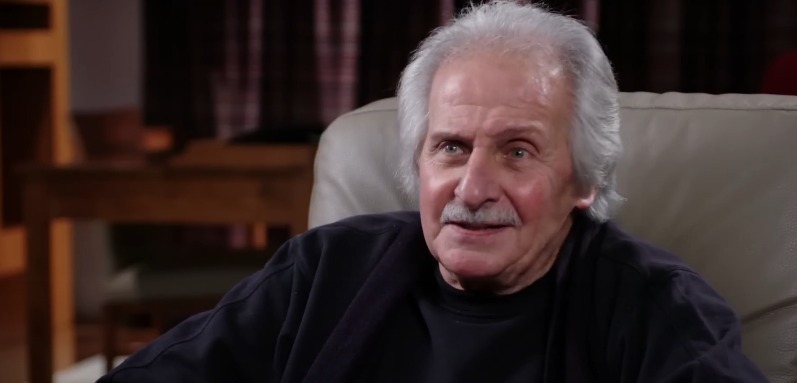The Ed Sullivan stage was never visited by Pete Best. He didn’t walk into Abbey Road as a household name or revel in the yelling frenzy of Shea Stadium. His tale, however, is still ingrained in popular music like a haunting echo of a note played too early rather than a main melody. Pete Best’s estimated $4 million net worth as of 2025 is the result of an exceptional combination of timing, tenacity, and delayed recognition rather than superstardom.
Pete was born Randolph Peter Scanland in 1941 in British India, and his early years were influenced by his mother’s audacious vision. Following the Best family’s relocation to Liverpool, his mother Mona converted their basement into the Casbah Coffee Club, providing a venue for teen musicians to perform before Liverpool had a notable scene. As they got ready for their legendary Hamburg residencies, Lennon, McCartney, and Harrison started to tighten their harmonies in this echo-filled room, eventually dragging Pete Best behind the kit.
Best anchored the rhythm of a band on the edge for two whole years, hammering out beat-heavy sets in smoke-filled German bars as the band honed its sound. However, Best was fired in favor of Ringo Starr in August 1962, right before an agreement with EMI was about to be reached. His career was permanently shattered by the dismissal, which is still up for debate.
| Field | Details |
|---|---|
| Full Name | Randolph Peter Best (née Scanland) |
| Born | November 24, 1941, Madras, British India |
| Nationality | British |
| Occupation | Musician, former Beatles drummer, civil servant |
| Known For | Original drummer for The Beatles (1960–1962) |
| Band(s) | The Black Jacks, The Beatles, The Pete Best Combo |
| Spouse | Kathy Best |
| Children | Beba Best, Bonita Best |
| Net Worth (2025) | $4 million |
| Royalties Source | “The Beatles Anthology 1” (1995), early recordings |
| Residence | Liverpool, UK |
| Reference | Celebrity Net Worth |
Best’s chances vanished in the instant aftermath. His name was shockingly effectively erased from history as the Beatles rose to fame. Disregarded both publicly and privately, he battled depression before seeking security in the civil service and working in Liverpool’s employment office in silence, unnoticed but remembered by loyal supporters.

As bootlegs circulated and tribute acts thrived in the late 1970s and early 1980s, Pete Best continued to be financially marginalized. In 1965, he sued for defamation after Lennon and Starr made disparaging comments. Even though the case was resolved, the settlement was not nearly as large as the $18 million that was initially requested. Legal action at the time didn’t provide much closure.
However, something unexpected occurred in 1995.
Millions of people were reintroduced to Best’s drumming through the extensive archival project “The Beatles Anthology 1.” There were ten early tracks that featured his performances. Fans who were eager to follow the band’s difficult beginnings bought the compilation in droves, sending it to the top of the charts. Pete Best reportedly received a royalty check worth between £1 million and £4 million. This payout is approximately $3 to $12 million USD in today’s currency.
Notably, this single release greatly improved his financial situation and repositioned him as an audible part of the Beatles’ beginnings rather than just a forgotten footnote. The majority of his current $4 million valuation still comes from the royalties he receives from Anthology.
Rejuvenated and re-embraced, Pete took the stage again in the late 1990s. He toured, published an autobiography, formed The Pete Best Band, and started talking candidly about his experience. The resentment subsided, leaving behind a self-aware, grounded person with a unique viewpoint on notoriety, legacy, and second chances.
Best’s legacy has recently taken on an unexpectedly entrepreneurial twist. Pete and his brother converted their Liverpool childhood home into an Airbnb with a Beatles theme in 2024. The Casbah Coffee Club’s original décor is still present on the property, and visitors can sleep in the same room where the Beatles used to practice and paint the walls. The Best family capitalized on a cultural nostalgia that draws music pilgrims from all over the UK and beyond by fusing hospitality with tradition.
Notably, Pete Best does not receive royalties from the Beatles’ studio albums, which were released subsequent to his termination. However, any song that incorporates his early recordings continues to generate income. Due to ongoing interest in the group’s early years, his income is incredibly stable even though it is modest by McCartney or Starr standards.
People like Syd Barrett and Dave Mustaine, who were essential members of legendary bands but abandoned at pivotal times, can relate to Best’s story in many ways. Once hidden, their legacies are now being reexamined through fan-driven tributes, reissues, and documentaries. Pete Best’s financial trajectory serves as an especially instructive reminder of how swiftly fortunes can change when notoriety is redistributed over time.
